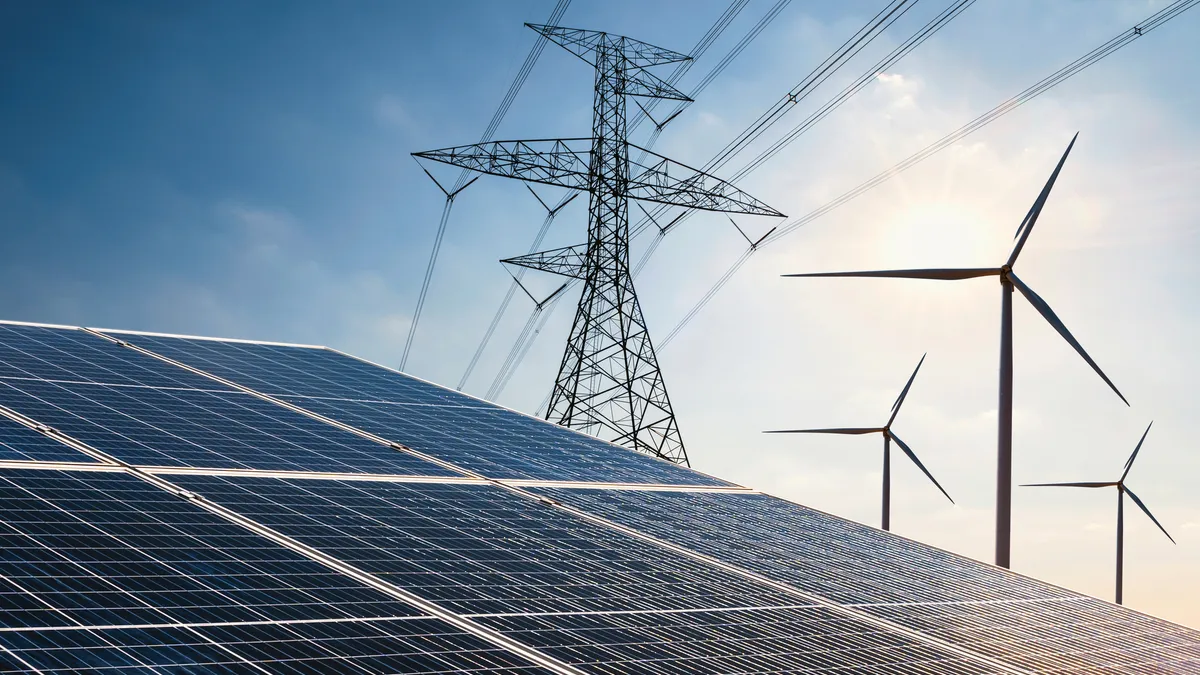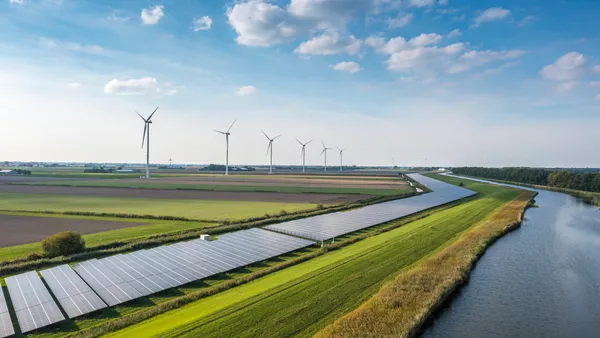Dive Brief:
- President Joe Biden on Monday issued plans for a 24-month exemption from tariffs for solar panel imports from Cambodia, Malaysia, Thailand and Vietnam.
- The solar industry expects the two-year break from tariffs will run parallel to the continuing solar panel anti-circumvention investigation from the Department of Commerce on those four Southeast Asian countries.
- The reprieve is intended to protect existing solar jobs that were at risk due to supply chain constraints reported earlier this year, according to Abigail Ross Hopper, president and CEO of the Solar Energy Industries Association.
Dive Insight:
Legislators, industry leaders and key cabinet secretaries within the Biden administration have highlighted the negative impacts on the solar sector of the Commerce Department investigation that kicked off in March. While the investigation is expected to take nearly a year before it makes a final determination on solar imports from Cambodia, Malaysia, Thailand and Vietnam, many solar developers have already announced difficulties with supplying projects.
Nearly 80% of the panels U.S. companies use currently come from those four Southeast Asian countries, according to the American Clean Power Association. The preliminary probe could lead to tariffs of 50% or more on imports of those parts and panels, according to the Department of Commerce.
Commerce Secretary Gina Raimondo told the Senate Appropriations Committee in May that the agency is moving as quickly as possible to provide an early determination of the investigation, which was prompted by a request from California-based solar panel manufacturer Auxin Solar.
As first reported by Reuters, the plans the White House is expected to announce would rely on executive action and on invoking the Defense Production Act. According to the White House, the Biden administration will "put the full power of federal procurement to work spurring additional domestic solar manufacturing capacity by directing the development of master supply agreements, including 'super preference' status."
Ross Hopper said in a statement that "while the Department of Commerce investigation will continue as required by statute, and we remain confident that a review of the facts will result in a negative determination, the president’s action is a much-needed reprieve from this industry-crushing probe."
However, for the executive order to have legal standing, the Biden administration must argue that the U.S. solar market was in an “emergency” situation, according to Wood Mackenzie analysts. Despite industry voices insisting that is the case, Sylvia Leyva-Martinez, North America utility-scale solar senior analyst, and Michelle Davis, solar principal analyst, wrote that the legal standing remains an open question.
The executive order has led some solar manufacturers to restart production: Wood Mackenzie’s analysis shows suppliers are expected to ship modules as early as the end of the third quarter, with “a modest upside” of 1.5 GW additions to utility-scale solar in 2022, and potentially 3 GW in 2023.
According to Reuters, Biden would invoke the Defense Production Act to use federal loans and grants to grow domestic solar panel manufacturing and other clean-energy technologies. The new authority will allow the Department of Energy to "help strengthen domestic solar, heat pump and grid manufacturing industries while fortifying America’s economic security and creating good-paying jobs, and lowering utility costs along the way," Energy Secretary Jennifer Granholm said in a statement.
"Indeed, growing a robust solar supply chain here in the United States is critical to meeting SEIA’s goal of having solar account for 30% of all electricity by 2030," Ross Hopper said.
"Today’s announcement is a great step, and enactment of the Solar Energy Manufacturing Act for America will provide an even greater boost," she said, in support of a bill introduced last year by Sen. Jon Ossoff, D-Georgia.
That bill seeks to create tax credits for solar manufacturers, and it's gained support as legislators consider the need to incentivize solar manufacturing in this country. In October, Granholm called the Solar Energy Manufacturing Act for America bill a "game changer."
Levya-Martinez and Davis also wrote of additional uncertainty regarding the Uyghur Forced Labor Protection Act, a new law that could “severely constrain module imports to the US.”
Editor’s Note: This article has been updated to include analysis from Wood Mackenzie.















